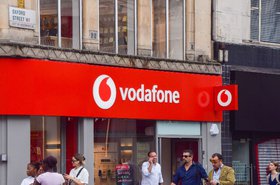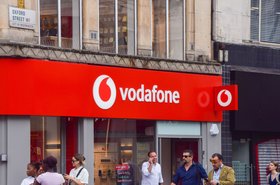The UK Competition and Markets Authority (CMA) has found competition concerns over Vodafone’s planned £15 billion ($19bn) merger with Three.
In an announcement today (September 13), the regulator revealed that its investigation, led by an independent inquiry group, has "provisionally concluded that the merger would lead to price increases for tens of millions of mobile customers, or see customers get a reduced service such as smaller data packages in their contracts."
The CMA launched its Phase 2 investigation into the merger, which is poised to create the UK's biggest mobile network operator, back in April, before extending the deadline for a decision on the merger until December 7.
Today, the CMA said that it has particular concerns that higher bills could impact those customers least able to afford mobile services.
On top of this, the regulator stated that the merger would have a negative impact on ‘wholesale’ telecoms customers – mobile virtual network operators (MVNOs) such as Lyca Mobile, Sky Mobile, and Lebara. All three of these MVNOs rely on existing network operators to provide their own mobile services.
The merger is set to reduce the number of mobile network operators in the UK from four to three.
"Overstated" 5G
Both Vodafone and Three have previously stated that a merger paves the way for an improved 5G service in the UK. However, the CMA has said these claims are "overstated."
"We’ve taken a thorough, considered approach to investigating this merger, weighing up the investment the companies say they will make in enhancing network quality and boosting 5G connectivity against the significant costs to customers and rival virtual networks," said Stuart McIntosh, chair of the inquiry group leading the investigation.
"We will now consider how Vodafone and Three might address our concerns about the likely impact of the merger on retail and wholesale customers while securing the potential longer-term benefits of the merger, including by guaranteeing future network investments."
The merger will give Vodafone a 51 percent majority stake in the combined entity, currently labeled as "MergeCo," with CK Hutchison's Three holding the remaining 49 percent.
Both telcos have previously said they welcome a more in-depth probe into the proposed union. The previous UK government approved the merger in May.
Rival telco BT, which owns EE, has its own concerns about the deal, saying it would "create a merged entity with a disproportionate share of capacity and spectrum," which it notes is unprecedented in the UK and Western European mobile markets, while Unite the union has issued its own objections.
The CMA said that it will consult on its findings so far, and has invited responses to its provisional findings by October 4, 2024, and its notice of possible remedies by September, 27, 2024.
In response to the findings, Margherita Della Valle, Vodafone chief executive, said: “Our merger is a catalyst for change. It’s time to take off the handbrake on the country’s connectivity and build the world-class infrastructure the country deserves. We are offering a self-funded plan to propel economic growth and address the UK’s digital divide."
Time to remedy
The CMA announcement is unlikely to come as a surprise to the networks, according to Kester Mann, director, consumer and connectivity, CCS Insight.
"The CMA offers a potential path to approval through a range of remedies. Crucially, it appears willing to consider 'behavioral remedies' such as enhanced network access for virtual providers or safeguards for retail customers," he said.
Mann notes that Vodafone and Three should be encouraged by the tone of the report, which he suggests sounds more open to the merger than expected.
"The ball is now firmly back in the court of Vodafone and Three," he added.
"They need to quickly assess these proposals and make further suggestions ahead of a final deadline in early December. The next three months may prove to be the most pivotal in the history of the UK telecoms sector."







